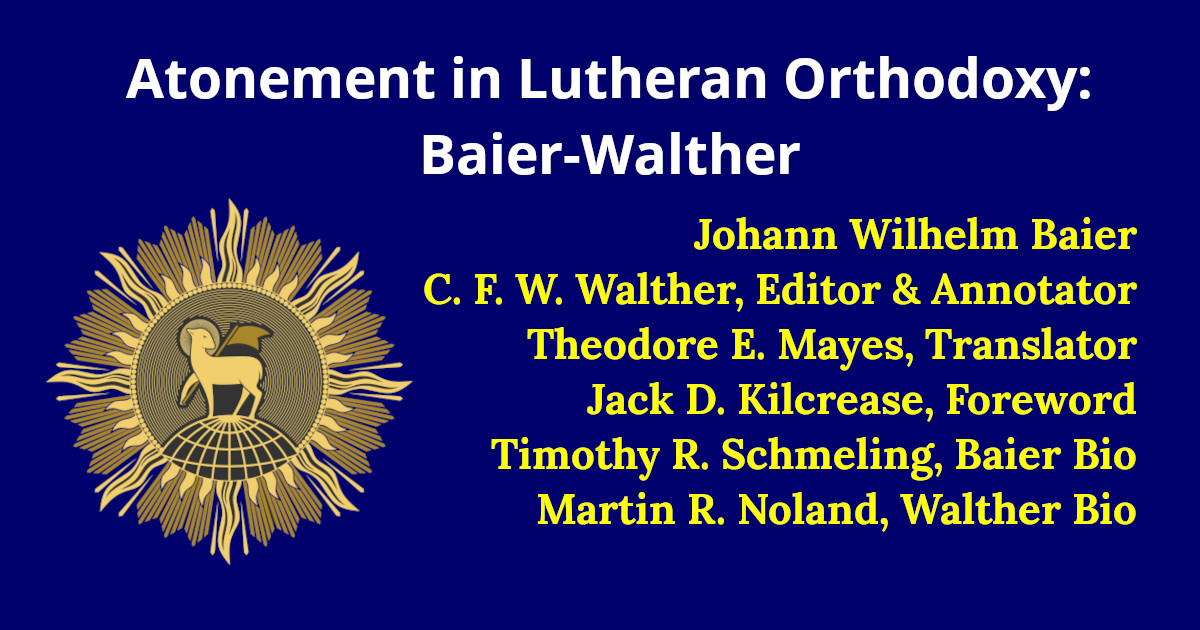C. F. W. Walther selected Johann Wilhelm Baier’s Compendium Theologiae Positivae as the basis for the first dogmatics used to prepare pastors for The Lutheran Church—Missouri Synod. Walther edited Baier’s Compendium and annotated it with excerpts from Luther and orthodox Lutheran theologians.
Baier-Walther’s “On the office of Christ” (Vol. III, Cap. II. Sectio III, De officio Christi) is both an antidote to errors about atonement in Lutheran circles and evidence of the doctrine of the synod. Lutheran Orthodoxy teaches that an indispensable part of atonement is vicarious satisfaction. Adversaries deny vicarious satisfaction. Baier, Walther, Luther, and the many Lutheran theologians quoted in the annotations affirm vicarious satisfaction.
Today, notable Lutheran voices in symposia, congresses, dissertations, journal articles, and books raise concerns about contemporary teachings on atonement. Some express bewilderment at how the errors could gain currency. Others say it must be expected. Atonement directly concerns each one’s personal salvation. Its importance cannot be calculated. Occupying this vital place, it naturally becomes a principal target of attack.
Jack D. Kilcrease says, “For Lutheran Christians, modern flights from substitutionary atonement are highly problematic not only because they directly contradict numerous and clear statements of the Bible and the Book of Concord but also because they endanger the chief article of Christianity: justification through faith alone.”
It is time to remember Baier’s and Walther’s presentation of the atonement. We present here the first published translation of the Baier-Walther atonement material into English, translated by Theodore E. Mayes. Jack D. Kilcrease, author of The Doctrine of Atonement: From Luther to Forde and many other writings on atonement, justification, and Scripture, and Associate Professor of Historical and Systematic Theology at the Institute of Lutheran Theology’s Christ School of Theology, writes the foreword. Timothy R. Schmeling, author of Lives and Writings of the Great Fathers of the Lutheran Church and Professor of Exegetical and Historical Theology at Bethany Lutheran Theological Seminary, writes a biographical introduction to Baier. Martin R. Noland, past Director of Concordia Historical Institute and Associate Editor of Logia: A Journal of Lutheran Theology, writes a biographical introduction to C. F. W. Walther.
Kilcrease says in the foreword that Baier’s treatment demonstrates the centrality of the gospel for the Lutheran Scholastics. “Without Christ as the god-man who fulfilled the law on behalf of sinful humanity, the unconditional promise of the gospel would make little sense, and justification by faith would be an incoherent doctrine.”
Available at Amazon: Atonement in Lutheran Orthodoxy: Baier-Walther.




